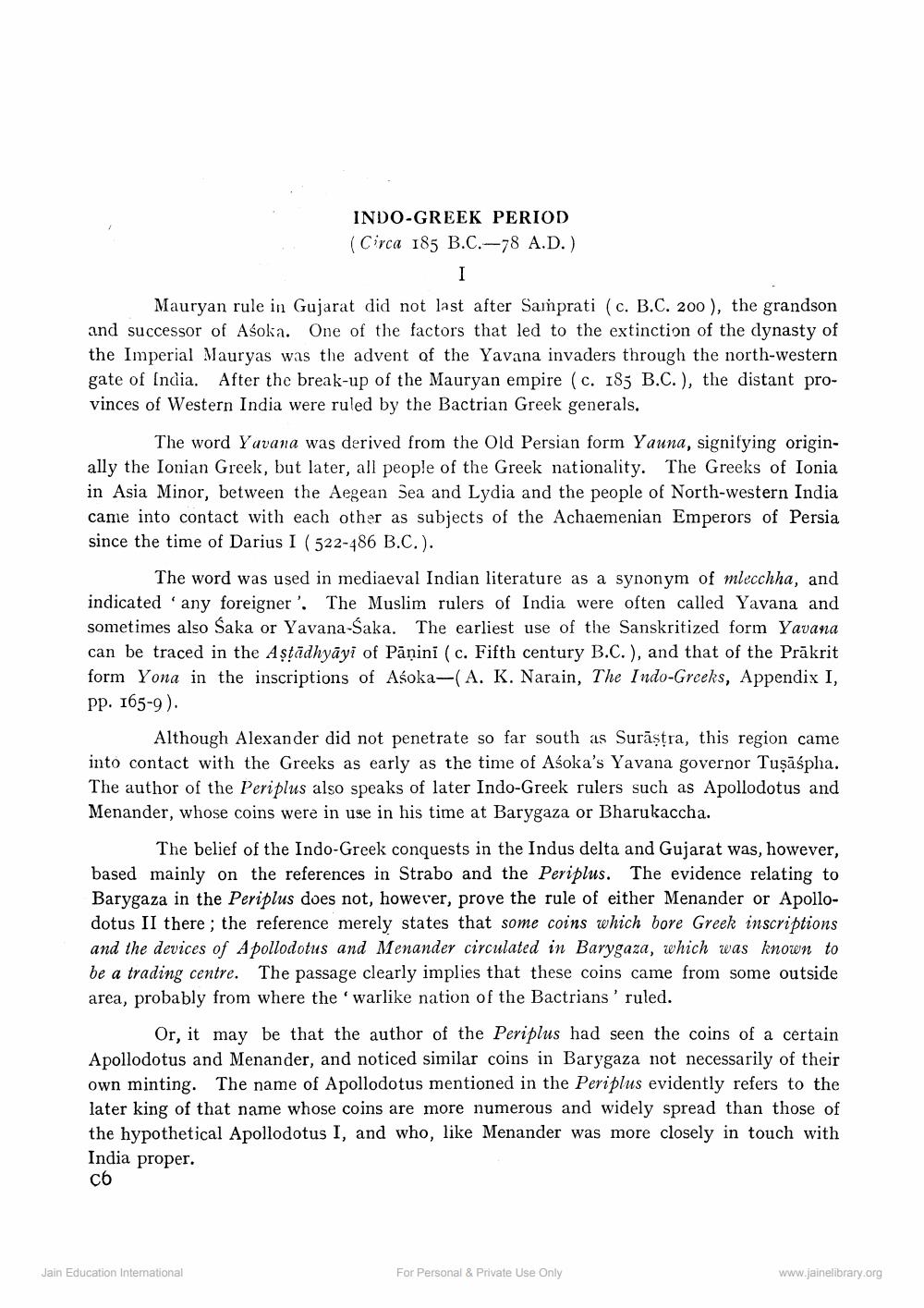________________
INDO-GREEK PERIOD (Circa 185 B.C.-78 A.D.)
Mauryan rule in Gujarat did not last after Samprati (c. B.C. 200 ), the grandson and successor of Asoka. One of the factors that led to the extinction of the dynasty of the Imperial Mauryas was the advent of the Yavana invaders through the north-western gate of India. After the break-up of the Mauryan empire (c. 185 B.C.), the distant provinces of Western India were ruled by the Bactrian Greek generals,
The word Yavana was derived from the Old Persian form Yauna, signifying originally the Ionian Greek, but later, all people of the Greek nationality. The Greeks of Ionia in Asia Minor, between the Aegean Sea and Lydia and the people of North-western India came into contact with each other as subjects of the Achaemenian Emperors of Persia since the time of Darius I ( 522-486 B.C.).
The word was used in mediaeval Indian literature as a synonym of mlecchha, and indicated any foreigner'. The Muslim rulers of India were often called Yavana and sometimes also Saka or Yavana-Saka. The earliest use of the Sanskritized form Yavana can be traced in the Astādhyāyi of Pāṇini (c. Fifth century B.C.), and that of the Prākrit form Yona in the inscriptions of Asoka-(A. K. Narain, The Indo-Greeks, Appendix I, Pp. 165-9).
Although Alexander did not penetrate so far south as Surāstra, this region came into contact with the Greeks as early as the time of Asoka's Yavana governor Tuşāspha. The author of the Periplus also speaks of later Indo-Greek rulers such as Apollodotus and Menander, whose coins were in use in his time at Barygaza or Bharukaccha.
The belief of the Indo-Greek conquests in the Indus delta and Gujarat was, however, based mainly on the references in Strabo and the Periplus. The evidence relating to Barygaza in the Periplus does not, however, prove the rule of either Menander or Apollodotus II there; the reference merely states that some coins which bore Greek inscriptions and the devices of Apollodotus and Menander circulated in Barygaza, which was known to be a trading centre. The passage clearly implies that these coins came from some outside area, probably from where the 'warlike nation of the Bactrians' ruled.
Or, it may be that the author of the Periplus had seen the coins of a certain Apollodotus and Menander, and noticed similar coins in Barygaza not necessarily of their own minting. The name of Apollodotus mentioned in the Periplus evidently refers to the later king of that name whose coins are more numerous and widely spread than those of the hypothetical Apollodotus I, and who, like Menander was more closely in touch with India proper.
c6
Jain Education Intemational
For Personal & Private Use Only
www.jainelibrary.org




